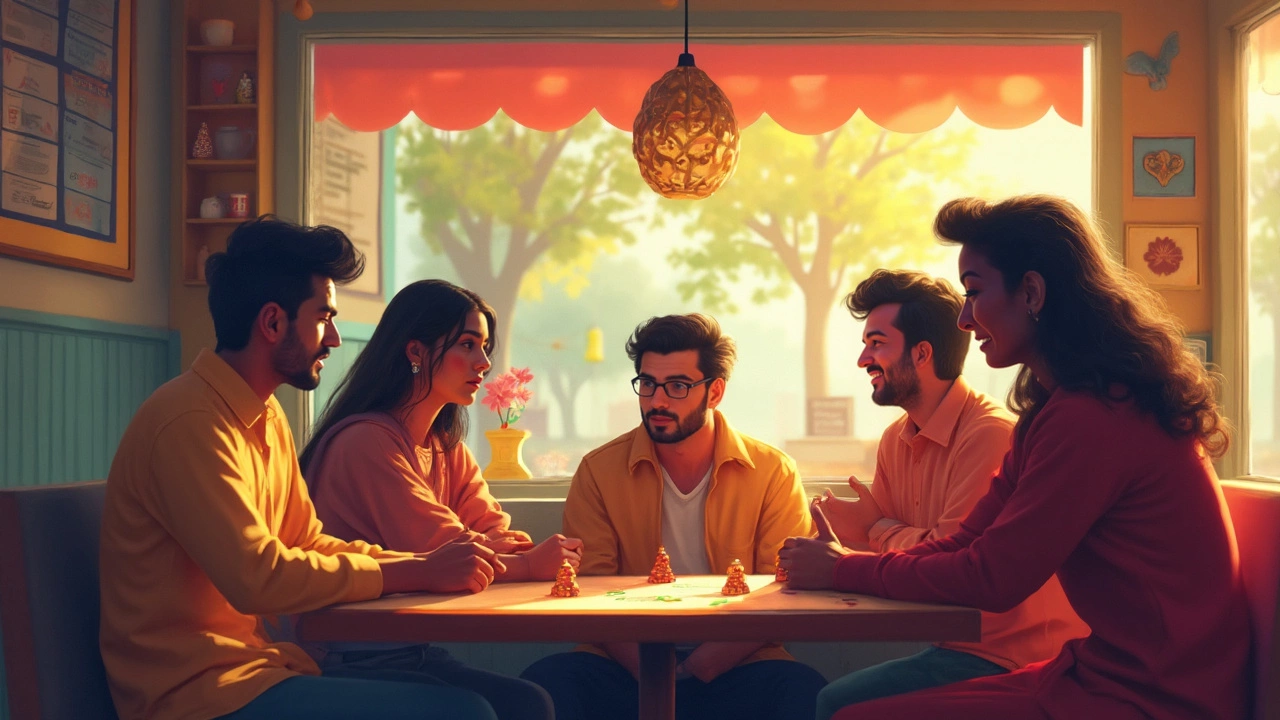
Ever noticed how the drive to win can feel like turbo on your self-esteem—until that spark turns into a wildfire and suddenly, it’s burning up everything in its path? Being competitive feels like an asset, and honestly, in some situations it is. Fast promotions, top grades, personal bests—you name it. But there’s another side nobody brags about. Turns out, being driven by competition can trip you up in ways you never expected, sometimes sabotaging happiness, relationships, and even your health. With my coffee gone cold and my cat Luna snoozing beside me, let’s pull back the curtain on what’s really at stake when you’re always gunning to be number one.
The Emotional Toll: Anxiety, Burnout, and Self-Worth on a Tightrope
When you thrive on competition, it feels like a rush. Every challenge is a call to action, every opponent a measuring stick for your abilities. But this energy isn't free. Living in a constant state of competition triggers extra stress hormones—your brain’s fight-or-flight system stays on high alert, even in situations that don’t need a battle plan. This means if you’re always measuring yourself against others, regular days can start to feel like you’re running an Olympic final. The Cleveland Clinic points out chronic stress can mess with sleep, memory, and even your immune system, making you more likely to get sick.
This hypervigilance translates into something that researchers at Stanford call “achievement anxiety.” Suddenly, it’s not about enjoying the process or learning something new; it’s about not falling behind. Days that aren’t littered with wins feel like personal failures. Over time, that does a number on your mental health. A survey by the American Psychological Association revealed that nearly 30% of overachievers face symptoms of burnout by their mid-30s—higher than their less-competitive peers.
It gets worse. When your sense of worth is tangled up in external results (grades, salary, follower count), every loss hits hard, as if it’s proof you’re not enough. Self-esteem isn’t steady—it’s tied to the last thing you achieved. Luna, my cat, couldn’t care less if she’s the ‘best’ at sleeping. She sleeps because it’s comfy, no judgment. That’s the zen we competitive folks keep missing.
If anxiety and burnout sound familiar, here are some tips to help soften those sharp edges:
- Practice self-compassion: Celebrate effort and progress. If things don’t go your way, show yourself the same kindness you’d offer a friend.
- Take regular breaks: Don’t wait for exhaustion. Schedule downtime and truly unplug—even if it means blocking off ‘me time’ on your calendar.
- Set process, not just outcome, goals: Focus on what you can control—your actions and growth. It feels way less stressful than always chasing a win.
- Learn to spot toxic competition: Not every situation is a race. Recognize when it’s time to collaborate or pivot instead of pushing harder.

Relationships on Edge: The Social Side Effects of the Competitive Mindset
Ever heard someone described as “too competitive”? It’s usually not a compliment. A 2022 Gallup poll showed that while 62% of employers value healthy competition, over 40% of employees reported strained workplace relationships when competition gets out of hand. In personal life, friends and family might start dodging board game night or avoid sharing big news, just to keep things chill. Competitive people often get labeled as sore losers or, worse, unsupportive winners.
The biggest problem? Your relationships can start to feel transactional. If you’re clocking every win, how many compliments you get, or always looking for an edge—even with loved ones—it erodes trust and intimacy. People around you might feel threatened or uncomfortable, wondering if you see them as teammates or rivals. You might find yourself surrounded by people who tolerate you, but don’t really connect.
This isn’t just speculation. A study from the University of Michigan found that people who score high on competitive traits also tend to report fewer close friendships and lower relationship satisfaction. It’s exhausting for everyone to be in a constant state of one-upmanship.
If you care about your relationships, try these shifts:
- Celebrate other people’s wins—genuinely. Shift focus to shared joy, not just solo achievement.
- Practice active listening: Ask questions, don’t just wait for your turn to speak or outdo someone’s story.
- Don’t make everything a contest: It’s okay to finish a hike, meal, or conversation without being “the best.”
- Express gratitude: Thank the folks who have your back instead of seeing them as rivals.
| Competitive Trait | Possible Relationship Effect |
|---|---|
| Always aiming to win | Perceived as unsupportive |
| One-upping stories | Friends feel undervalued |
| Seeking validation | Makes relationships transactional |
| Minimizing others’ successes | People feel demotivated |

Missing the Bigger Picture: Smarter Ways to Succeed Without Self-Sabotage
You know that feeling when you get your dream job, hit your PR, or cross something off the bucket list and, within minutes, the high fades and you’re already plotting the next goal? That’s the competitive mindset robbing you of satisfaction. According to Harvard’s Grant Study, the single biggest factor for sustained happiness wasn’t success but warm, consistent relationships and a sense of purpose. If your eye is glued to the scoreboard, you miss out on those deeper rewards.
Competitive people are also more likely to make risky decisions just to win. Financial analysts at Yale found that traders with intense competitive streaks made 16% more high-risk bets, even when a stable return was the smarter play. Lost perspective equals lost opportunity—and sometimes lost money.
There’s another sneaky downside—creativity. Stanford researcher Carol Dweck found that collaborative environments foster innovation, while high-competition ones tend to narrow your thinking. When everything is a contest, you’re less likely to take creative risks or work with others to build something cool.
How do you keep your competitive drive from hijacking your happiness or turning you into a lone wolf? Here’s what helps:
- Live in the present: Celebrate where you are, not just where you’re headed.
- Redefine success: Make room for connection and enjoyment, not just trophies and milestones.
- Embrace collaboration: You don’t lose by working together; you often gain allies, new skills, and fresh ideas.
- Choose your battles: Not every arena is worth winning—save your energy for what really matters to you.
| Competitive Drive | Possible Cost |
|---|---|
| Never satisfied | Short-lived happiness |
| Risk taking | Poor long-term outcomes |
| Going solo | Fewer support systems |
| Zero-sum thinking | Less space for growth and innovation |
So, yeah, being competitive can give you an edge. But left unchecked, it can also backfire, draining your energy, fraying your relationships, and keeping you from really enjoying what you’ve achieved. If you can learn to channel that drive the right way—balancing competition with kindness, ambition with gratitude—you’ll find the kind of success that actually feels good and lasts. Now, if only Luna would compete for attention instead of the warmest sunbeam, maybe I’d have some company for all this self-reflection.





